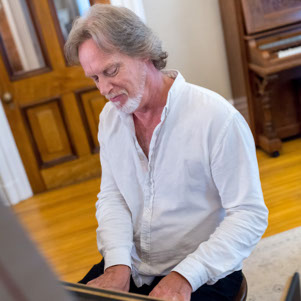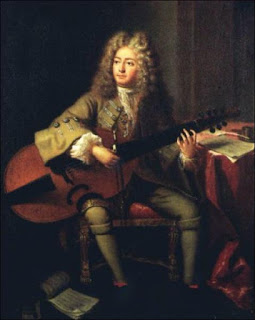by Daniel Hathaway

The concerts, at Holy Trinity Lutheran in Akron on December 21 at 7:30 pm, at Lakewood Congregational on December 22 at 8:00 pm, and Our Lady of Peace on December 23 at 4:00 pm, will be anchored by Charpentier’s unique Midnight Mass on French Noëls. “There are eleven French Noëls incorporated into the Mass either in instrumental interludes or in ingenious interpolations throughout the text,” Milnes said in a telephone conversation. “Almost every main motive is derived from a carol tune. It’s hard for us in our Anglo-German culture to imagine a mass built on Silent Night or Joy to the World.”
Will all those tunes be as familiar to the audience as the carols he mentioned? “Maybe one or two of them have made their way into our holiday traditions, maybe not,” Milnes said. “I have the benefit of working a lot in Québec, so I get to experience more directly how that population relates to the tradition. But these carols are still far less known, far less performed, and far less familiar than their German or English counterparts, even in the Baroque community.”
Less familiar perhaps, but no less alluring for the listener. “They’re all folk song-y in nature, accessible, and celebratory,” he said. “We’re also including other Noëls in a set of instrumental ‘Concertos’ by Michel Corrette, and Quire will sing others in choir-only format led by Jay White. We’ve taken care that none of the tunes in the program will be heard twice. It’s going to be a smorgasbord of French carols.”
Charpentier’s Mass will share the program with another of the composer’s Christmas works, the Dialogue Between the Angels and the Shepherds. “Charpentier studied with Carissimi in Rome, who was one of the creators both of opera and sacred oratorio. He brought those ideas back to Paris and invented the French version of the Italian oratorio,” Milnes said. “He wrote many such pieces, the first French efforts at an art form that added poetic texts to Biblical stories and verses. The Dialogue is on a small scale but it’s a charming, dramatic, and moving account of that encounter on Christmas Eve.”

And the singers should have little problem with the repertoire, although it does demand a bit of a change in pronunciation. “I’m well aware that they’ve sung a good bit of French Baroque repertoire, and they’re used to working with French Baroque pronunciation of Latin,” Milnes said, adding that he once had the ironic experience of re-training a French-speaking choir in Montréal who had only sung Latin in the Italian style.
True to Baroque practice, Eric Milnes will conduct from the keyboard of a chamber organ. “It’s the only way I’ve ever directed this music. For me, it feels more in touch with how music was made then — the idea of a stand-in-front conductor was a later phenomenon. You can show a lot of things from the keyboard that make talking less necessary, and musicians who are used to listening to the cues that you present to them at the keyboard can get a lot of information that way.”
And Milnes, who played harpsichord on Les Délices’ recent “Songs Without Words” crossover program of Torch Songs from the 17th to the 20th centuries, looks forward to the freedom of varying his continuo stylings from performance to performance. “It’s the closest we can get to being an 18th-century jazz musician.”
Speaking of that program — on which he improvised a memorably jazzy harpsichord bridge between songs — I asked Eric Milnes if he had yet heard the recently-released recording. “Actually, I edited it,” he said, “it’s part of my toolkit.” Oops! He went on to relate his long experience as a recording producer and editor in Montréal, Paris, and elsewhere, including 60 of his own performances. He said that a recent project with Scott Metcalfe’s Blue Heron Ensemble in Boston marked the first time that a non-European ensemble had ever won an English Gramophone award.
Add his recording, conducting, and touring activities to his job as music director at an Episcopal Church on Long Island — from which he’s going to be away the week before Christmas — and I ended our conversation wondering when Eric Milnes sleeps. “You know,” he said, “I never feel like I work more than a nine-to-fiver. It’s one of the great pleasures of being a full-time musician. We’re always at play, never at work.”
Tickets can be reserved online.
Published on ClevelandClassical.com December 17, 2018.
Click here for a printable copy of this article


